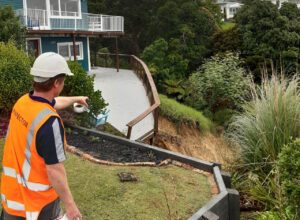Investing in the country’s transition into a circular economy

With the recent release of the Sustainable Finance (SF) Roadmap, the Bangko Sentral ng Pilipinas (BSP) has recognized the need to transition the country into a more sustainable and environmentally mindful society, towards the goal of becoming a circular economy.
According to the central bank, this transition is “inevitable,” as the country faces challenges that could hamper, if not outright damage, its development in the future, such as its depleting natural resources and its extreme vulnerability to climate change.
“Within the Philippines, the Bangko Sentral ng Pilipinas recognizes financial stability concerns arising from climate change and other environmental and social risks that could significantly affect the bank’s operations and financial interest,” the central bank wrote in the roadmap.
“These risks, such as physical and transition risks, could result in significant societal, economic, and financial risks affecting the banks and stakeholders. Furthermore, the BSP acknowledges the important role of the financial industry in achieving sustainable development in the Philippines.”
The BSP defines sustainable finance as any form of financial product or service which integrates environmental, social and governance criteria into business decisions that supports economic growth and provides lasting benefit for both clients and society while reducing pressures on the environment. This covers green finance which is designed to facilitate the flow of funds towards green economic activities, and climate change mitigation and adaptation projects.
BDO Unibank, Inc., the largest bank in the Philippines, has long been a proponent of this movement, having established its own Sustainable Energy Finance Program in partnership with the International Finance Corp. (IFC) as far back as 2010.
The program, which initially focused on financing renewable energy projects, has since expanded to include all forms of sustainable practices including energy efficiency, climate-smart agriculture, green infrastructure, clean transportation, and other SF eligible projects aligned with global standards. To date, BDO has funded sustainable energy finance projects amounting to P548 billion.
This year alone, BDO Unibank has issued the its Peso-denominated ASEAN Sustainability Bond, which raised P52.7 billion — more than 10 times the original offer of P5 billion on very strong demand from retail and institutional investors, and by far the largest issuance for any Philippine financial institution or company.
In April, the Maiden Blue Bond issue amounted to $100 million, the first private sector issuance in Southeast Asia, with the IFC as the sole investor in the Bond.
“We see the Sustainable Finance Guiding Principles as a key positive in the promotion of sustainable finance in the country as these set guidelines/standards insofar as identifying activities/projects eligible for sustainable finance, addressing the impact of climate change and encouraging investments in these activities,” BDO said.
Sustainable financing, according to the lender, generates positive economic, environmental and social impact not only for the banks and clients engaged in these eligible projects, but also in the community where these projects operate. BDO said these projects have always been baked into the organization’s growth strategy, and it expects its role in the company’s development to increase as the financial sector at large recognizes the significance of sustainability moving forward in improving the country’s odds to external risks while generating environmental, social and economic benefits.
“Sustainable finance has always been an integral part of our business. We will continue to build on our decade-long experience in this area not only to manage the impact of climate-related risks on our portfolio but also venture into SF opportunities that remain untapped to further expand the business,” BDO said.
“While still comprising a small share of the industry’s loan portfolio, sustainable finance is expected to steadily rise given increased awareness of the negative impact of climate change and the growing clamor for projects with sustainability/ESG considerations.”
There is robust market for sustainable financing as policies and technology increasingly gear toward environment-friendly and socially-responsible products, the organization noted. The attractiveness of sustainable finance is highlighted by the public’s growing awareness on the negative impact of climate change and rising investor interest in ESG investments, further motivating the market to pursue sustainable ways of doing business. Pursuing sustainable finance, then, not only ensures the resilience of the financial value chain, but helps address the impact climate change will have on business and society.
“BDO will continue to scale up lending to climate-smart infrastructure, eco-friendly solutions, green facilities, and other sectors identified in the Bank’s SFF, as well as consider thematic bonds eligible under the SFF, following the successful issuances of pioneering instruments in recent years (i.e., Green Bond, Sustainability Bond, and the Blue Bond),” BDO said.
Spotlight is BusinessWorld’s sponsored section that allows advertisers to amplify their brand and connect with BusinessWorld’s audience by enabling them to publish their stories directly on the BusinessWorld Web site. For more information, send an email to online@bworldonline.com.
Join us on Viber to get more updates from BusinessWorld: https://bit.ly/3hv6bLA.




